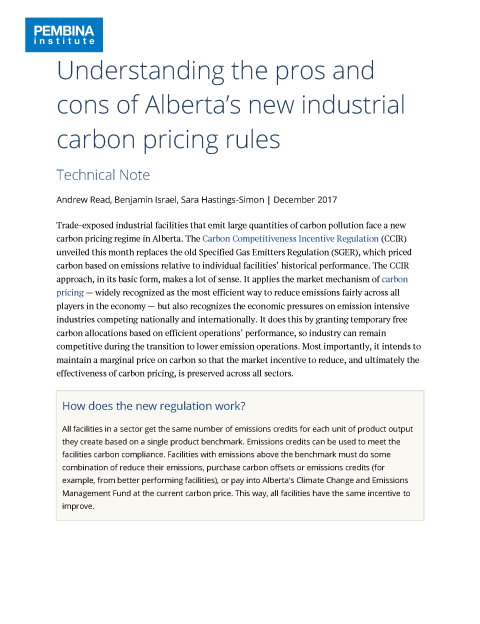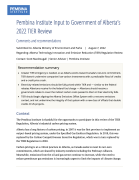Trade-exposed industrial facilities that emit large quantities of carbon pollution face a new carbon pricing regime in Alberta. The Carbon Competitiveness Incentive Regulation (CCIR) unveiled this month replaces the old Specified Gas Emitters Regulation (SGER), which priced carbon based on emissions relative to individual facilities’ historical performance. The CCIR approach, in its basic form, makes a lot of sense. It applies the market mechanism of carbon pricing — widely recognized as the most efficient way to reduce emissions fairly across all players in the economy — but also recognizes the economic pressures on emission intensive industries competing nationally and internationally. It does this by granting temporary free carbon allocations based on efficient operations’ performance, so industry can remain competitive during the transition to lower emission operations. Most importantly, it intends to maintain a marginal price on carbon so that the market incentive to reduce, and ultimately the effectiveness of carbon pricing, is preserved across all sectors.
Understanding the pros and cons of Alberta’s new industrial carbon pricing rules
Technical Note
December 20, 2017
Publication

Tags:
Related Research & Analysis
Carbon Removal, Oil & Gas
December 2, 2024
Publication
Growing Carbon Storage in Alberta
Pembina Institute submission to Alberta Environment and Protected Areas

Programs
Leading the transition to clean energy requires advancing solutions to today’s energy challenges from various angles.
The Pembina Institute has spent four decades working to reduce the environmental impacts of Canada’s energy production and to provide actionable ideas on how to implement clean energy.







